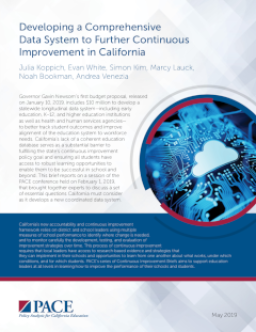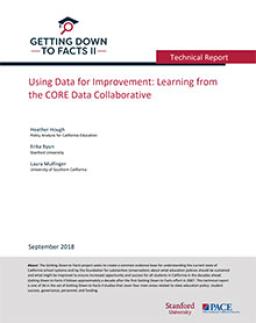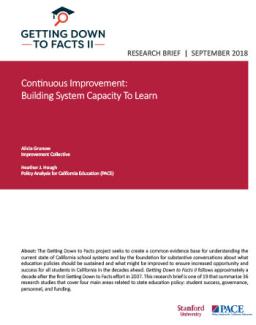Summary
Summary
Effective data use is crucial for continuous improvement, but there is confusion about how it differs from data use for other purposes. This report explains what data are most useful for continuous improvement and presents a case study of how the CORE data collaborative uses a multiple-measures approach to support decision-making.
Summary
Continuous improvement in education involves engaging stakeholders in problem-solving to discover, implement, and spread evidence-based changes that work locally to improve student success. California sees it as central to enduring education transformation. It requires an initial significant investment in time and money to make it a reality, but can improve education quality. However, California's data systems are inadequate for helping districts monitor progress, and more training and coaching are needed to build expertise for statewide implementation.


